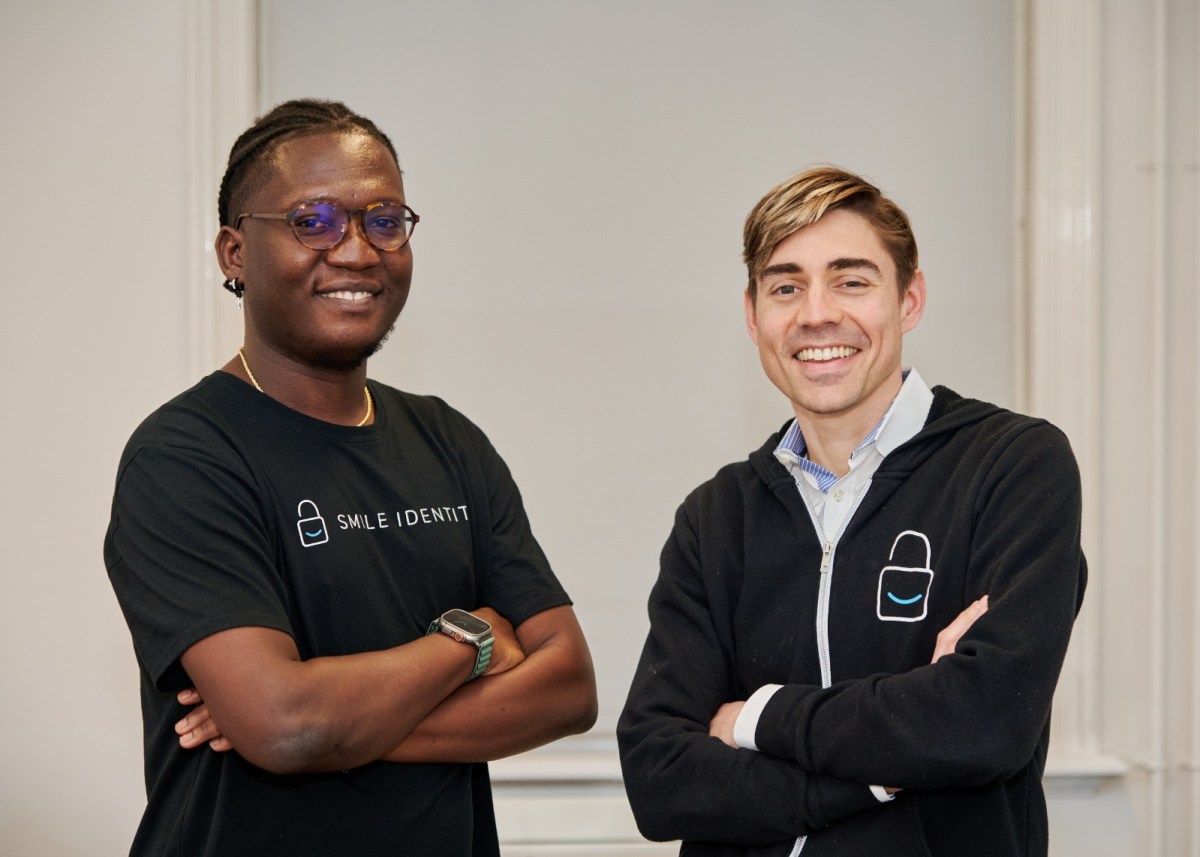Smile Identity, a KYC compliance and ID verification partner for many African fintechs and businesses, has acquired Inclusive Innovations, the parent company of Appruve, a Ghanaian developer of identity verification software.
In a statement shared with TechCrunch, Smile Identity said it is “actively fulfilling regulatory requirements to finalize the transaction for the [Inclusive Innovation] affiliated entities in Africa.” This strategic acquisition will expand Smile Identity’s footprint across Africa and solidify its position as the continent’s leading identity verification and digital KYC provider, a part of the statement read. While the terms of the deal were not disclosed, sources close to the matter say the cash-and-stock deal was “not more than $20 million,” with a large chunk as stock.
As fintech services proliferate across different African markets, the need to have sufficient KYC and identity verification processes in place has intensified amid increasing fraud challenges and more stringent regulatory requirements.
Founded by Mark Straub and William Bares in 2017, Smile Identity is a major player in Africa’s ID verification and KYC compliance industry. Buoyed by venture capital investment of more than $30 million (including a recently announced $20 million Series B) and backed by investors such as Costanoa Ventures, Future Africa and Norrsken22, among others, the company has built its business by combining document verification, face verification, biometrics, and data integrations into local trusted ID authorities to verify people’s identities. Other prominent use cases include AML checks, customer onboarding and fraud prevention.
On the other hand, Appruve, which provides an API that verifies user identity, fraud detection and digital documentation, primarily focuses on new datasets that enable or complement traditional government data such as international passports and national IDs. Within the last 18 months, the four-year-old startup worked on analyzing fraud data from global money networks, verification of mobile money financial statements and blocklist data from various banks and fintechs within the last 18 months. (The four-year-old digital verification upstart has received less than $500,000 in venture capital funding since its inception as well as $450,000 in grant money from DFS Lab through the Bill & Melinda Gates Foundation, Google’s launchpad studio accelerator, and others.)
“These are relevant localized data that have long been left out of the bigger pool of KYC and fraud prevention. It’s these capabilities, experience, and know-how that we are bringing on board, working together with Smile, which just launched an AML product, to build a fully comprehensive product and solution for the market,” said Appruve founder and CEO Paul Damalie on what his startup brings to Smile Identity’s table.
Here’s also how it fits into Smile Identity’s current growth strategy from a product but geographic-led standpoint. Document verification and face recognition and matching comprise Smile Identity’s base-level product that works across Africa. While the platform has added depth in some markets with more advanced fintech regions, such as Nigeria, Kenya and South Africa, where it can query against government databases, such depth is lacking in other markets, including Francophone Africa. In a February interview, Straub noted that Smile Identity would use the growth capital it had secured to expand its KYC capabilities into the market, among other things. Thus, in addition to supplying Smile Identity with a skilled and experienced team, APIs and customers, Appruve presents the Costanoa-backed KYC identity provider with a gateway into the Francophone market (focusing on Ivory Coast and Senegal) and also Uganda, Straub told TechCrunch over a call.
“We have product depth in Nigeria already. We’re interested in replicating the product depth to more markets and realizing our ambitions to have product depth for all of Africa,” Straub said on the call. “Fraud data, mobile money data, government data queried against national ID systems, AML, PEP screening checks, sanction screening, both global and local KYB business verification data. We want to add that depth in more markets, and Appruve gives some of that.”
Smile Identity, according to its statement, said the Appruve acquisition — which expands its suite of APIs, including mobile money, data, and anti-fraud checks — will allow it to “cover over 1 billion Africans, the African diaspora, and 100 million African businesses, supporting over 230 documents and data types with integration options for every device and operating system combination in Africa.” Before the acquisition, Smile Identity had just crossed over 60 million verifications. Meanwhile, Appruve processed up to 100,000 verifications monthly, Damalie disclosed in the interview.
Straub asserts that the combination of Smile Identity and its new subsidiary Appruve alongside the intervention of other KYC and AML services, will help decrease the potential for fraud despite increased usage of digital wallets, banking apps, and mobile money services across the continent. He added that protecting consumers’ data is paramount to Smile Identity’s business, and both Smile and Appruve “have been working diligently to achieve and maintain the appropriate licensing regimes where required and various data protection policies.”
In line with that, Damalie, who will now head international expansion efforts for Smile Identity, says, in a couple of years, the company sees itself acting as “the digital infrastructure that will enable trust among African businesses” as the intra- and inter-continental movement of goods and services across borders become more pronounced.”
